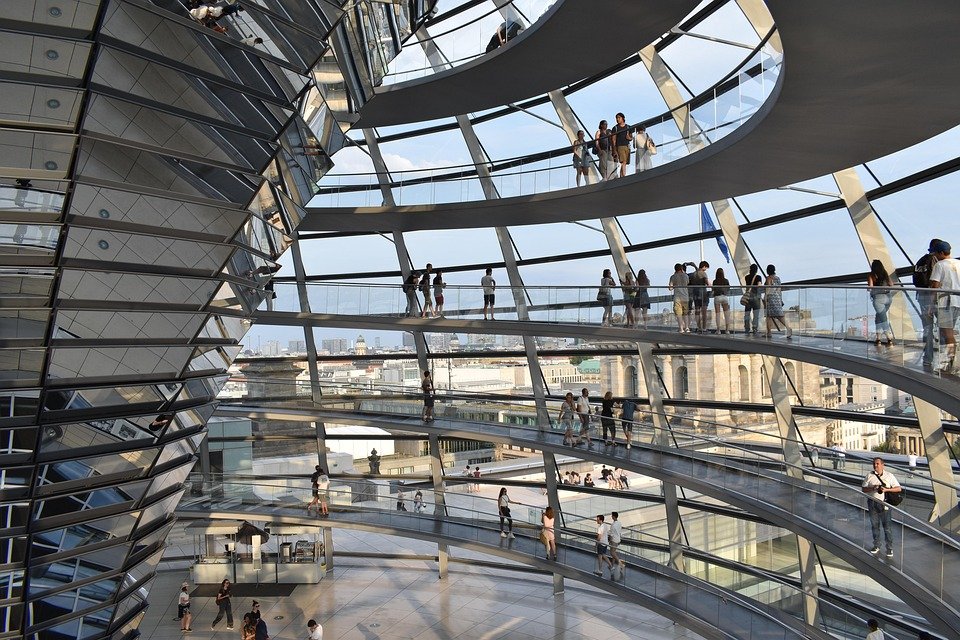Wondering when to go to Berlin without running into huge crowds or bad weather? It's a great question to ask because the best time to visit Berlin truly depends on a mix of your preferences—weather, budget, local events, and what you want to experience. Luckily, I've put together a comprehensive guide to navigating this fabulous city throughout the year.
Overview of Berlin’s Climate
Before we dig into the best times to visit, let's chat about Berlin's climate. The city experiences a temperate oceanic climate, which means you can expect distinct seasonal changes. Summers are generally warm, with average temperatures peaking around 25°C (77°F), while winters can get quite chilly, often hovering around zero degrees Celsius (32°F).
The weather in Berlin can also shift dramatically from one season to the next. Spring brings that refreshing breeze and mild temperatures, while summer often rewards you with sunny days perfect for outdoor activities. Autumn has a stunning display of colors and can be surprisingly pleasant, and winter comes with crisp air and the perfect backdrop for festive markets. Generally, you'll want to pack layers, regardless of the season, to adapt to the temperature shifts.
Month-by-Month Breakdown
January to March (Winter to Early Spring)
Weather: Cold and often damp, with January being the coldest month where you might see some snow.
Events: While the festive Christmas markets wind down, events like Berlin Fashion Week happen in January.
Pros: You'll find fewer tourists, meaning cheaper hotels and shorter lines at attractions.
Cons: The weather in Berlin can be freezing, and daylight hours are short. If you're not a fan of cold, it might be tough to enjoy the outdoor sightseeing.
Best for: Budget travelers or those who love winter. If you're a fan of winter sports, nearby ski resorts can be a safe bet.
April to June (Spring to Early Summer)
Weather: Temperatures rise and very few rainy days can be expected. It's a great time for outdoor activities, with temps ranging from 10–20°C (50–68°F).
Events: May is vibrant in Berlin with events like the International Museum Day and the Berlin Carnival of Cultures.
Pros: The city feels alive again, blossoms bloom, and there's a palpable energy. Prices are still reasonable before the summer rush kicks in.
Cons: Some days can still be a bit unpredictable, with sudden rain.
Best for: Photographers and those seeking beautiful nature scenes or activity in the parks.
July to August (Summer)
Weather: Warmest months in Berlin, where average temperatures can hit up to 30°C (86°F).
Events: Renowned summer events include "Fête de la Musique" and the famous Berlin International Beer Festival.
Pros: Najdiverse outdoor concerts, festivals, and events abound. If you love a lively atmosphere, this is the time to be in the city.
Cons: It's peak tourist season, so attractions are crowded and hotel prices spike.
Best for: Festival lovers, families, and anyone ready to soak up the vibrant city life at its peak.
September to November (Autumn)
Weather: A beautiful transition you've probably seen in movies. Expect temps from 10–20°C (50–68°F).
Events: This season features the Berlin Art Week and the Festival of Lights, where buildings are illuminated at night with mesmerizing displays.
Pros: Less crowded than peak summer months, and the stunning autumn colors make walks around the city picturesque.
Cons: As you move toward late November, days become shorter and colder.
Best for: Couples looking for a romantic getaway or art enthusiasts.
December (Winter Holiday Season)
Weather: Cold and often snowy. Expect sub-zero degrees during evenings.
Events: Berlin's Christmas markets are legendary, and special holiday events pop up everywhere.
Pros: It's a magical time with the city's stunning light displays and festive atmosphere. Plus, should you enjoy holiday shopping or seasonal events, this is definitely the place to be.
Cons: A cold city isn't for everyone, and winter crowds can be overwhelming during holidays.
Best for: Those cozy vibes seekers and holiday lovers ready for a unique experience.
Tips Based on Travel Style
So, when's the ideal time to visit Berlin based on your style?
-
For Budget Travel: January to March is your best bet. Cheap accommodation and fewer tourists mean you can save quite a bit.
-
For Avoiding Crowds: Late fall (September to early October) might be optimal. You get pleasant weather without the summer throngs.
-
For Outdoor Activities or Cultural Events: Late spring (May and June) or early fall (September) is great for both. The weather cooperates, and you'll find plenty of events happening.
- For Romantic or Solo Trips: Autumn brings a unique charm with its cool breezes and colorful leaves, while late March through June offers perfect photo ops amidst flowering parks.
Ultimately, even within this structured breakdown, the best time to travel to Berlin is highly personal. Some travelers love the tranquility of January because of the quieter vibe, while others aim for the exciting summer festivals in July.
Remember, each season brings something unique, so think about what experience you're looking for. Whether it's budget-friendly exploration, cultural immersion, or just soaking in the charisma of this fantastic city, there's a time that's just right for you!
FAQ
Is January a good time to visit Berlin?
It can be! If you're looking for quieter attractions and lower accommodation costs, January is great, but be prepared for chilly weather.
When is the rainy season in Berlin?
Although it can rain throughout the year, late spring and early summer often see a little more rain.
What's the cheapest time to visit Berlin?
The first quarter of the year, particularly January and February, tend to offer the best deals.
What's the peak season in Berlin?
The summer months, particularly June to August, usually bring the highest tourist numbers, along with excitement and higher prices.
Enjoy planning your trip to Berlin! Whether you prefer the festive holidays or the warm summer nights, this city has a little magic no matter when you choose to visit.








